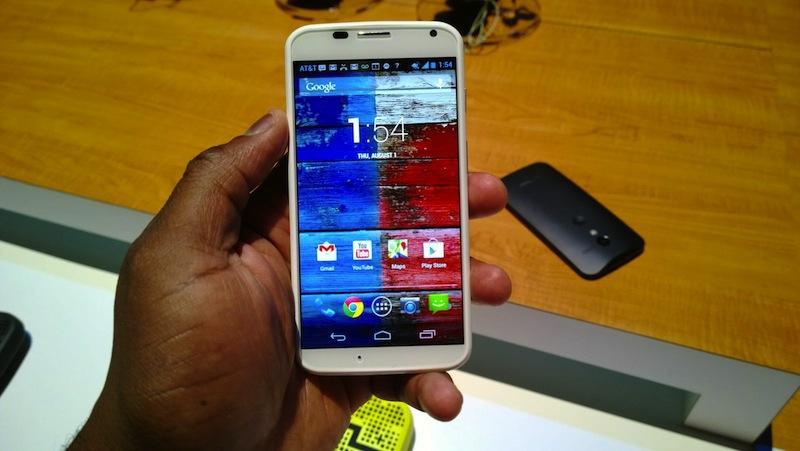
Yesterday, we watched Motorola launch their new "hero device." The Moto X fell right into line with plenty of rumors and speculation that we had been hearing over the last few months, but there were some very key elements that were just so wrong, it's almost laughable. Namely, the price. Thankfully, my fellow editor Anna already covered that base, so we can move onto something else.
As it stands right now, the Moto X is "almost stock." There are some alterations made here and there by Motorola, but it's not a purely vanilla version of Google's mobile operating system. So, those of us out there who thought Motorola was bringing us a device running the newest version of Android right out of the box, without any kind of proprietary modifications, were out of luck.
I didn't really think anything of that during the unveil, though. Truthfully, the version of Android running on the new Moto X, or the fact that it's not purely stock, didn't even really hit a point of interest for me until I heard another announcement right after. An announcement that's becoming quite popular these days.
"There will be a Google Play Edition version of the Moto X."
Well, okay, if you insist. But, what's the point?
I'm not entirely sure when it happened behind the scenes, but I'm now absolutely convinced that the Nexus brand has been shoved into the "cheap" category. With the launch of the Nexus 4, I thought the conversation for the mobile industry was to show that a relatively "high-end" device didn't need to have a ridiculously high price tag. I thought, or hoped even, that we would start to see other manufacturers follow suit.
That didn't happen, though. Not really. Yes, there are devices like the BLU Life Play that come unlocked, that feature plenty of great specifications, and don't bear a heavy price tag, but the truth is it just didn't catch on. Manufacturers don't have a problem charging an arm and a leg for their new devices, simply because there are avenues for customers to get them cheaper than that at check out. Even those monthly installment plans from T-Mobile, Verizon and AT&T look cheaper right at check-out, even if they're obviously nothing of the sort.
Ever since the Google Play Editions of the Samsung Galaxy S 4 and HTC One were announced, there's been this focus on the alternative. A company launches their own vision of the device, and then immediately there is talk about the Google Play Edition. I've already heard mention of a Play Edition LG G2. And now, Motorola is jumping on the bandwagon.
Meanwhile, the Nexus brand is just calmly sitting in the back of the room, unwilling to raise its hand to get any attention. It's become complacent in just allowing other devices with stock Android to take the limelight.
There is a difference, though. A big one, if you ask me. In the case of both Samsung and HTC, and I'm sure any future manufacturers that jump on board the Google Play Edition boat, the software updates are still being issued by the manufacturer, and not Google directly. Not like the Nexus handsets. So while the devices are technically capable of being updated, the update software still needs to be released by the manufacturers.
To me, that gives the Nexus brand a leg up on the competition. Especially considering those who pick up a Nexus device are primarily interested in software updates. That cold be shifting for the general consumer, though, if the Nexus brand continues to be the cheap option. And, let's face it, that's exactly what it's become. Just look at the price for the Nexus 4, through the Google Play Store, versus a Play Edition HTC One.
Personally, I think there's room for both the Google Play Edition devices to exist alongside the Nexus brand. But only because I think it's great that the manufacturers are, through their own methods, providing an option for consumers. Maybe someone wants a high-end device like the One, but they don't want Sense. Okay, you've got a choice without having to modify your software. However, I don't think the Play Edition devices need to be so expensive. After all, aren't manufacturers adamant about the software enhancements their devices bring to the table with their proprietary user experiences? If you're charging the same price for the stock version of Android, doesn't that kind of defeat the purpose, and indicate your own software isn't actually worth any extra money?
In any event, I want to know what you think of all these Google Play Edition devices rumored to be coming to the scene. Do you think it's a good idea? Do you think they should cost as much as they do? Or should the Nexus brand remain the main stage to see stock Android? Let me know!